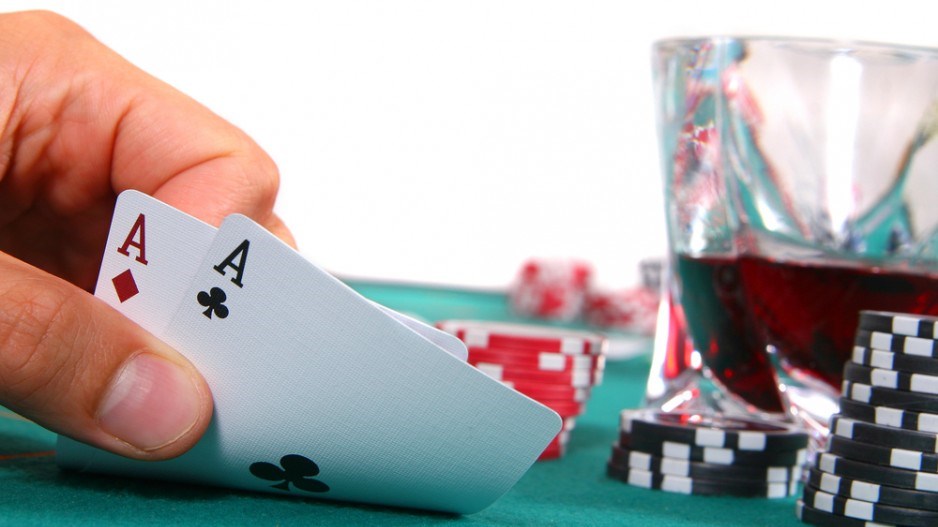B.C. casinos might be feeling the pinch of the Chinese government’s crackdown on corruption.
In its service plan released with last year’s B.C. budget, the BC Lottery Corp. (BCLC) boasted of record table game revenue that helped mitigate declines in slots and lotteries. The new service plan, published February 16, says the opposite is happening.
“The reverse trend is being experienced whereby a decrease in table game revenue is offset by increases in lottery and slot revenues,” said BCLC’s three-year, rolling service plan, which forecasts operations through 2018-19.
Bigger lottery jackpots than predicted have generated higher than budgeted sales and more British Columbians are visiting casinos in B.C. instead of Washington state, helping drive record slot machine revenue. Later in the report, BCLC said it expects to exceed its net income target when the fiscal year ends March 31, and it called the decline in high-limit table business “predicted.”
“Table revenues are dependent on wealthy players and high value international players who may choose to gamble elsewhere and therefore revenues are not reliable,” the report said. “Table play and the number of large jackpots are volatile and present risks for business growth. To mitigate this risk, BCLC sees a need to invest in innovation and infrastructure to support long-term business growth.”
Casino companies in Macau and Las Vegas that enjoyed an influx of high-rollers from mainland China have also reported declines over the last year, after President Xi Jinping’s belt-tightening edict for Chinese government workers.
BCLC netted almost $1.26 billion in 2014-15, and is forecasting $1.23 billion overall this year. The casino division is expected to bring in $913.1 million.
The report said BCLC faces increased competition from Washington and Nevada casinos, online gambling, fantasy sports and social gaming.
“Our gaming product portfolio is facing declining relevance due to changing demographics and expectations. BCLC is focused on attracting new players and increasing participation from light and moderate player segments through the creation of new content, and better integrating our digital and bricks and mortar experiences.”
The report alluded to BCLC needing “to be vigilant” in battling cyber attacks and privacy breaches, but it did not specify any incidents.
The BC Liquor Distribution Branch’s (LDB) warehouse move is delayed yet again.
In 2014, the Musqueam, Squamish and Tsleil-Waututh first nations and Aquilini Investment Group bought the East Vancouver warehouse, administration offices and a store for $37 million. The government agreed to lease back the facilities until moving in 2017.
Last year’s annual report said the goal was to be operational in a new warehouse by 2018, but the new service plan says the goal is “a new warehousing solution for 2019.”
LDB expects to net $970.1 million this year thanks, in part, to a nearly 7% net sales growth that was “driven mainly by higher volumes due to an unusually hot spring/summer and increased accessibility of beverage alcohol.”
The report conceded that the BC Liberals’ deregulation of liquor retailing is going slowly, with only four grocery stores selling wine. The government also opened the door to a “store-within-a-store” concept, but “none of those stores have opened yet,” the report said.
The year ending March 31 is the first under a new wholesale pricing scheme. LDB began last spring to sell liquor to retailers at a common price and its chain of 196 B.C. Liquor Stores became a customer of LDB’s wholesale division.
The retail operation is installing more refrigerators and expanding opening hours to meet customer demand.
ICBC is forecasting a $125 million loss, but a rebound to being $95 million in the black next year.
The corporation is in the seventh year of an eight-year, $400 million transformation to upgrade its systems and blames its woes on an increase in bodily injury claims and crash frequency. The service plan said it is adopting new analytics to help it better detect and investigate fraud.
Meanwhile, BC Pavilion Corp.’s service plan said it would lose more than $29.5 million from 2014-15 to 2017-18. The operator of the Vancouver Convention Centre and BC Place Stadium foresees a $5.3 million surplus in 2018-19 from proceeds of a proposed, yet unspecified land sale.
The Vancouver Convention Centre is expecting 515,000 delegate days by visitors to B.C. in 2016-17, “the highest number of (non-resident delegate days) achieved over the last five fiscal years.”
BC Place expects to report 1.43 million visits when the fiscal year ends in March, an uptick driven by last summer’s FIFA Women’s World Cup. It forecasts attendance will settle at 1.06 million a year. Cumulative losses for BC Place through 2018-19 are forecast at almost $63.4 million.




